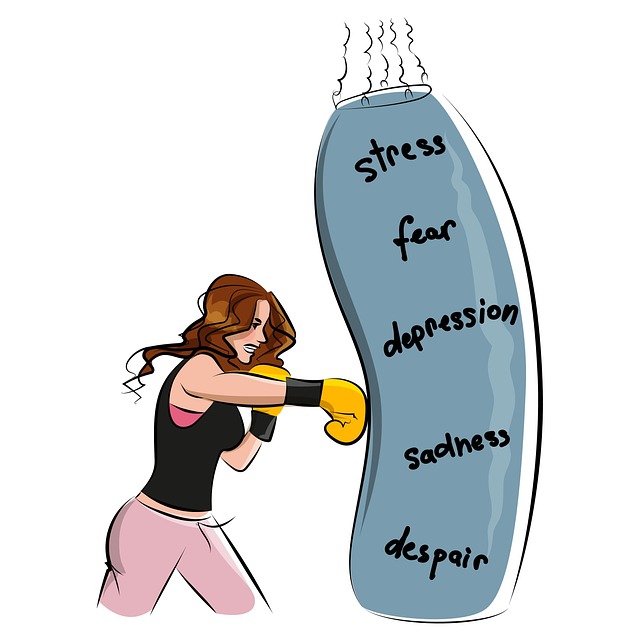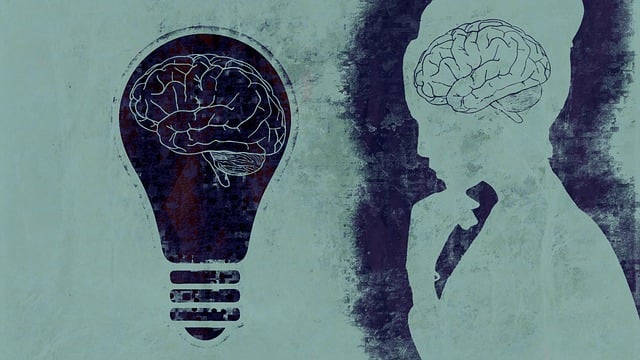Englewood Family Counseling Therapy promotes positive thinking as a core strategy for enhancing mental wellness. They address negative thought patterns through cognitive reframing, mindfulness, and journaling, encouraging clients to cultivate optimism and resilience. Their holistic approach includes Mental Wellness Coaching Programs with daily positive thinking exercises, stigma reduction efforts, and risk management planning. By integrating positive psychology into therapy, counseling, education, and community outreach, Englewood Family Counseling Therapy aims to improve mental health outcomes on individual, family, and community levels.
Positive thinking is a powerful tool for enhancing well-being, and Englewood Family Counseling Therapy offers a holistic approach to harnessing its benefits. This article guides you through understanding the core principles of positive thinking and its role in mental health. We explore effective exercises to identify and transform negative thought patterns, fostering a lasting positive mindset. From practical strategies to long-term success, discover how to integrate positive thinking into your daily life, drawing inspiration from the comprehensive methods provided by Englewood Family Counseling Therapy.
- Understanding Positive Thinking: The Foundation of Well-being
- Englewood Family Counseling Therapy: A Holistic Approach to Mental Health
- Identifying Negative Thought Patterns: The First Step Towards Change
- Practical Exercises for Cultivating a Positive Mindset
- Integrating Positive Thinking into Daily Life: Strategies for Long-term Success
Understanding Positive Thinking: The Foundation of Well-being

Positive thinking is a cornerstone of overall well-being and can significantly impact one’s mental health. At Englewood Family Counseling Therapy, we emphasize the power of positive thinking as a foundational element in fostering mental wellness. By cultivating a positive mindset, individuals can enhance their resilience, reduce stress, and improve their overall quality of life. This approach is particularly beneficial in countering the effects of mental illness and breaking down associated stigmas, which is a crucial aspect of our therapy services.
Incorporating positive thinking exercises into daily routines encourages individuals to focus on personal strengths, reframe negative thoughts, and foster optimism. These practices can be powerful tools for self-care and are an essential component of our comprehensive mental wellness coaching programs. Through dedicated efforts in this area, such as those in Mental Illness Stigma Reduction Efforts and Risk Management Planning for Mental Health Professionals, we aim to develop and support programs that promote positive thinking, ultimately contributing to the development of Mental Wellness Coaching Programs.
Englewood Family Counseling Therapy: A Holistic Approach to Mental Health

Englewood Family Counseling Therapy offers a holistic approach to mental health, recognizing that well-being is deeply interconnected with various aspects of life. This unique therapy model addresses individual, family, and community needs, providing comprehensive support for those seeking to enhance their mental and emotional resilience. By combining evidence-based practices with a nurturing environment, the counselors at Englewood aim to empower clients to overcome challenges, manage stress, and cultivate positive thinking patterns.
The holistic nature of this approach is particularly beneficial when addressing complex issues like conflict within families. Englewood Family Counseling Therapy incorporates conflict resolution techniques tailored to strengthen relationships and foster open communication. Moreover, their focus on public awareness campaigns development and mental health policy analysis and advocacy ensures that the community is equipped with knowledge and resources to support mental well-being on a broader scale.
Identifying Negative Thought Patterns: The First Step Towards Change

Negative thought patterns are often the root of many mental health challenges, including anxiety and depression. Identifying these patterns is a pivotal step in any journey towards positive thinking and improved well-being. At Englewood Family Counseling Therapy, we emphasize the importance of self-awareness in this process. Our counselors guide individuals to recognize recurring negative thoughts and beliefs that may have developed over time, often unconsciously.
By understanding these thought processes, one can begin to challenge and replace them with healthier alternatives. This is where the practice of positive thinking exercises becomes a powerful tool. Through techniques such as cognitive reframing, mindfulness meditation, and journaling, individuals learn to intercept negative thoughts and transform them into more constructive and realistic perspectives. This initial step, coupled with professional crisis intervention guidance and effective risk management planning, empowers mental health professionals and their clients to navigate challenges with greater resilience and optimism.
Practical Exercises for Cultivating a Positive Mindset

Cultivating a positive mindset is a powerful tool for enhancing mental health and overall well-being, and there are several practical exercises that can help individuals embrace this approach. One effective method is to start each day with a gratitude practice. Taking a moment to reflect on and appreciate the good things in life, no matter how small, can significantly shift one’s perspective towards positivity. Individuals can keep a gratitude journal, sharing their grateful moments with trusted friends or family, or simply expressing them mentally as part of their morning routine.
Englewood Family Counseling Therapy recommends another powerful exercise: positive affirmations. Repeating affirmative statements about oneself and one’s capabilities can build resilience and foster emotional intelligence. These affirmations should be tailored to the individual’s specific goals and aspirations, reinforcing a sense of self-worth and optimism. Incorporating such practices into daily life not only promotes a more positive mindset but also serves as a foundation for participation in Mental Health Education Programs Design aimed at fostering holistic mental health.
Integrating Positive Thinking into Daily Life: Strategies for Long-term Success

Integrating positive thinking into daily life is a powerful tool for mental health and well-being, as advocated by professionals at Englewood Family Counseling Therapy. It’s not just about fleeting moments of optimism; it’s cultivating a mindset that can enhance resilience and overall satisfaction. To achieve long-term success, individuals should consider making positive thinking an integral part of their routine. This involves setting aside time each day for practices like gratitude journaling, where one reflects on the day’s positives, no matter how small. It also entails challenging negative thought patterns and replacing them with more constructive alternatives.
For professionals in the mental health field, such as those involved in Risk Management Planning, this can be extended to incorporating positive psychology interventions into therapy sessions. Community Outreach Programs and Social Skills Training can also benefit from these strategies. By fostering a positive environment and encouraging clients to adopt optimistic perspectives, professionals contribute to building stronger communities and improved individual coping mechanisms, ultimately leading to better mental health outcomes.
Implementing positive thinking exercises, as highlighted by Englewood Family Counseling Therapy, offers a holistic approach to enhancing mental well-being. By understanding negative thought patterns and learning practical strategies for cultivating positivity, individuals can navigate life’s challenges with greater resilience. Integrating these practices into daily routines fosters long-term success, leading to a more balanced and fulfilling life. This journey towards positive thinking is accessible to all, providing a powerful tool for personal growth and overall mental health improvement.














